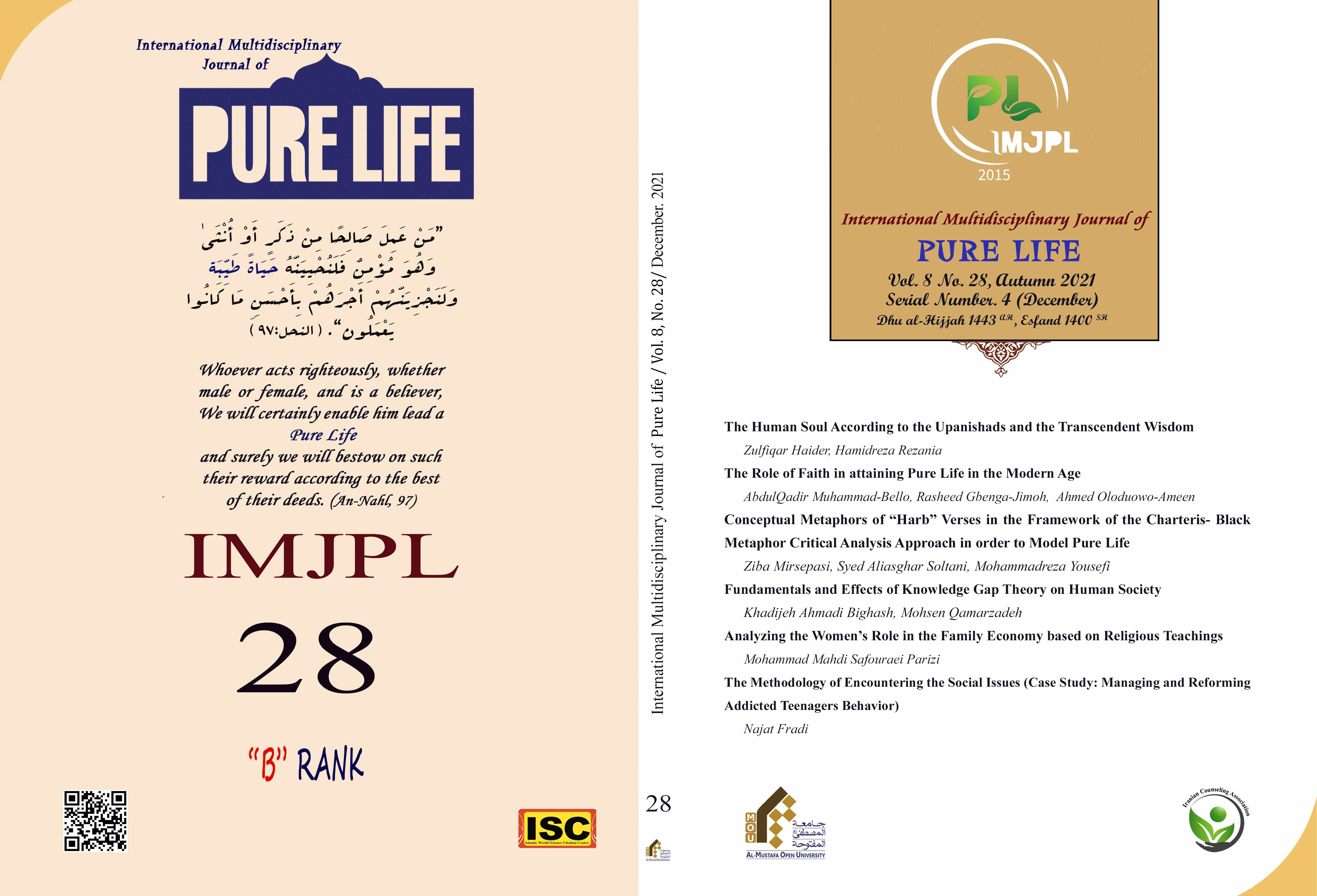Document Type : ORIGINAL RESEARCH PAPER
Author
Associate Professor in Department of Educational Psychology, Faculty of Psychology and Educational Studies, Al-Mustafa International University, Qom, Iran
Abstract
SUBJECT AND OBJECTIVES: The issue of economy, occupation and livelihood is one of the most primitive and urgent issues that always accompany human life and form a major part of his life. The economic system governing the family should be such that it can overcome the existing problems and obstacles as the human life advances in any era.
METHOD AND FINDING: In this regard, the study of family economy and the methods of its management, the explanation of the economic fundamentals of family and the role of each member in its management are of particular importance. It is necessary to identify the correct pattern of consumption in the family and to explain successful strategies in the family economic management. each family member with their good tactfulness has a strong role in managing the family economy. Meanwhile, women’s role is more than others considering their position and responsibility. Identifying the costs and managing the income at home brings about the right consumption and optimal usage of the facilities, resulting in balance, the salvation of problems, the reduction of anxiety and worries, and the governance of peace and tranquility on the family atmosphere.
CONCLUSION: Simplicity and avoidance of formalities, creation of love and intimacy, reduction of wastefulness, creation of a spirit of patience and endurance and attention to the poor are the effects of the correct economy in the family. According to this research, the how of household economy management has become clear, in the light of which the existing economic problems in the families can be partly overcome.
Keywords
Main Subjects
- The Holy Qur’an.
- Afshari, Zahra (2001). Family Economy. Tehran: al-Zahra University Publications.
- Haerian, Mahmoud (2002). House Management. Tehran: al-Zahra University Publications.
- Hakimi, Muhammad (1991). Economic Criteria in Razawi Teachings. Mashhad: Razawi Research Center Publications.
- Hashemidaran, Hsasn. and Hussein Shirani (2005). Family Economy. Tehran: Porseman Publications.
- Kalantari, Aliakbar (2005). Islam and Consumption Pattern. Qom: Boostan Ketab
- Motahari, Ahmad (1979). The General Economic Relations. Qom: Islamic Reserves Association.
- Motahari, Morteza (1989). A Viewpoint on Economic System of Islam. Tehran: Sadra Publications.
- Mousavi Isfahani, Syed Jamal Addeen (2008). The Qur’an’s Economic Messages. Tehran: Islamic Culture Publications.
- Mousavi Kashmari, Mahdi (2008). A Research on Extravagance. Qom: Boostan Ketab Publications.
- Muhammadi Reyshahri, Muhammad (2009). Consumption Pattern from the Viewpoint of Qur’an and Hadith. Qom: Darol Hadith Publications.
- Rashidpour, Majid (2001). Balance and the Strength of the Household. Tehran: Ettela’at Publications.
- Razzaghi, Ibrahim (2005). Consumption Pattern and Cultural Invasion. Tehran: Chapakhsh Publications.
- Samuelson, Paul Anthoni (2005). Principles of Economics. Translatted by Morteza Muhammad-Khan. Tehran: Cultural-Scientific Corporation

